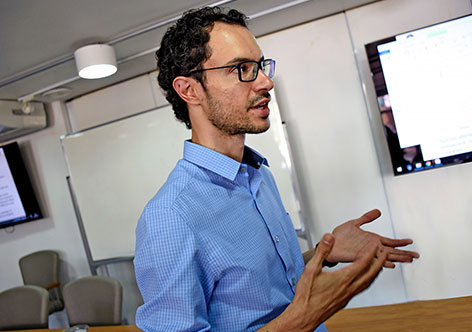MÍDIA
Rajan Kumar and Bruno De Conti | Financial Express (India)
The coronavirus pandemic has pushed the geopolitical rivalries and cultural fault-lines to the fore. International institutions are struggling to ensure cooperation and coordination among member nations that are riven by distrust. The Covid crisis has hurt the credibility and reputation of leading international organisations. For instance, the World Health Organisation (WHO), the UN agency leading the global fight against pandemic faces allegations of shielding China. It has become a victim of geopolitical contention between the United States (US) and China. The G-20 cancelled its virtual meeting due to bitter discord between Washington and Beijing over the role of the WHO. Washington demanded that independent experts be allowed to visit Hubei province. China dismissed this as a lame pretext to deflect its failures by the Trump administration.
The growing disagreement between Washington and Beijing has the potential to paralyse institutions such as the UNSC, the G-20, the WHO, and the WTO. International institutions, designed to serve the US-led liberal international order, have become rudderless. Emerging states are left with two choices: shore up their national capacities, and; keep the channels open with China through bilateral or multilateral forums. Countries are playing safe because Washington is no longer viewed as a reliable and trusted partner.
The hegemonic role that the US played with support from the G-7 and the EU appears to be an event of the past. This pandemic can prove to be the last straw for the country mired in ideological discord and economic downturn. The complacency and overconfidence of President Trump, combined with a fragmented health care system, turned the US into the epicentre of the pandemic. A country that used to inspire confidence is seen as a house in disarray.
The decline of the liberal international order offers an opportunity for the BRICS to step in and lead from the front. Its tasks are clear and well cut out: combat the pandemic and help others with the supply of medical gears, testing kits and medicines at reasonable rates; second, devise a roadmap for the economic revival of states in Asia, Africa and Latin America; and third, evolve a long-term policy on pandemic and climate change.
Read full article
 English
English




 O Instituto de Economia da UNICAMP foi criado em 1984 e tem por finalidade a promoção do ensino e da pesquisa na área de Economia.
O Instituto de Economia da UNICAMP foi criado em 1984 e tem por finalidade a promoção do ensino e da pesquisa na área de Economia.
